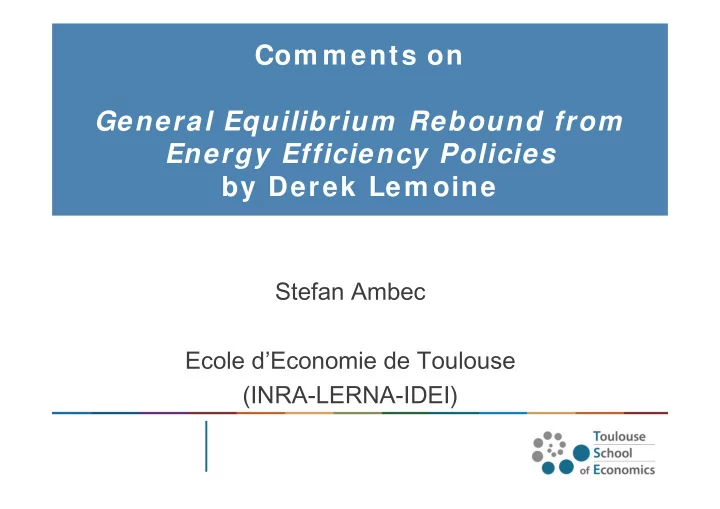

Com m ents on General Equilibrium Rebound from Energy Efficiency Policies by Derek Lem oine Stefan Ambec Ecole d’Economie de Toulouse (INRA-LERNA-IDEI) Auteur
Main Point • Impact of energy policy (tax): Engineering approach: increases energy efficiency and reduces energy use Rebounds effect with economic approach: Demand side effect or partial equilibrium: increase use of more efficient products (cars, lights,…) Supply effect or general equilibrium: reduces the price of energy • Analytical analysis with a simple general equilibrium model with ― Limited labour supply ― Increasing extraction cost of energy • Main findings: always rebound effect and sometime backfire effect (more than 100% rebound) 2
Comment • Why choose a tax and not a standard on energy efficiency as a first approach? • Reduced forms commented without being derived in the text: many of the implicit equilibrium solutions are hidden in the appendix but could be useful to understand the reduced forms and economic channels • What are the main assumptions that drive the result and differ from other general equilibrium models? 3
Suggestions future research • Welfare impact? Level of tax given the rebound effect? • Negative rebound or “super-conservation” might occur with “behavioral consumers” who value environmental damage but were not aware of it before the tax 4
Recommend
More recommend